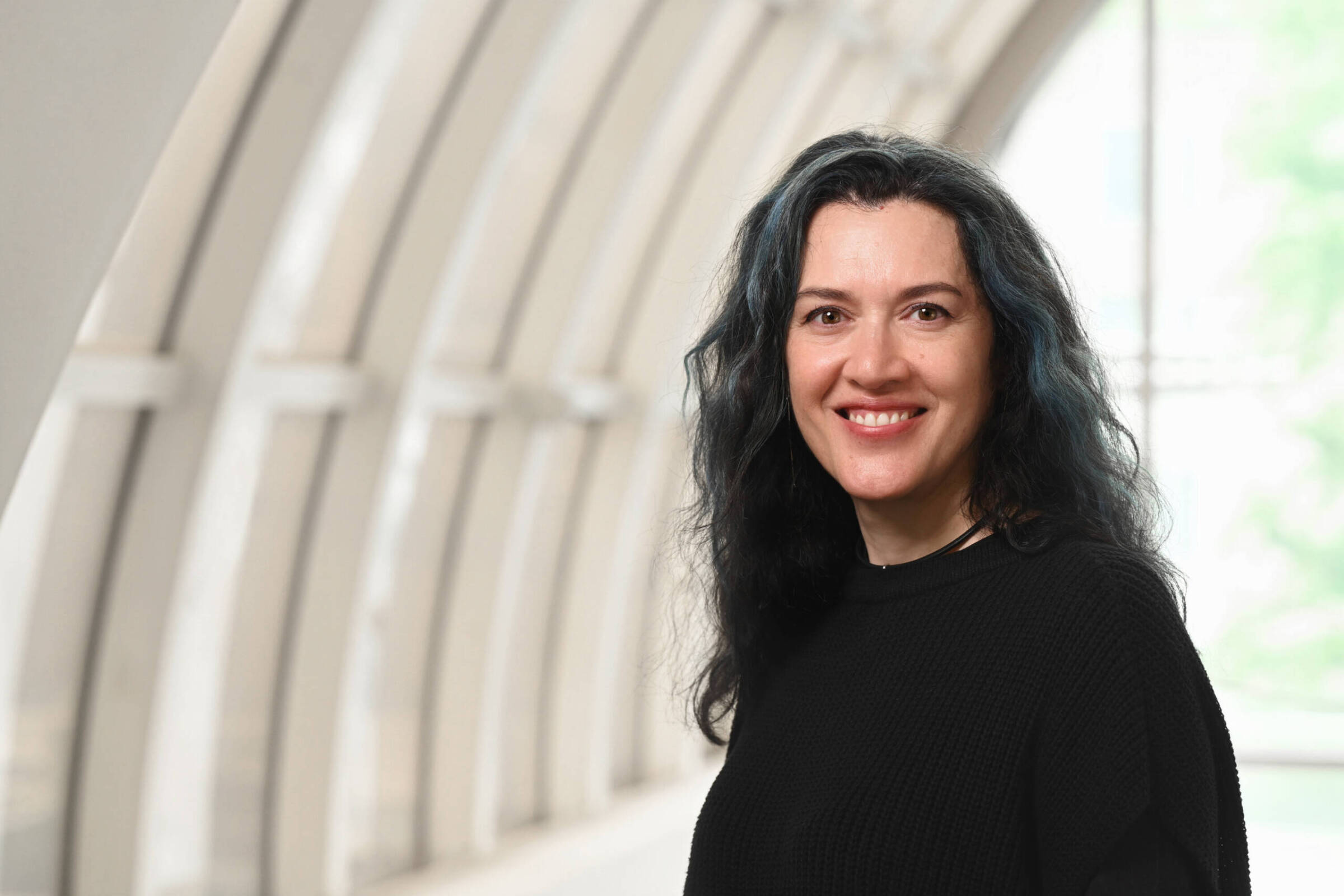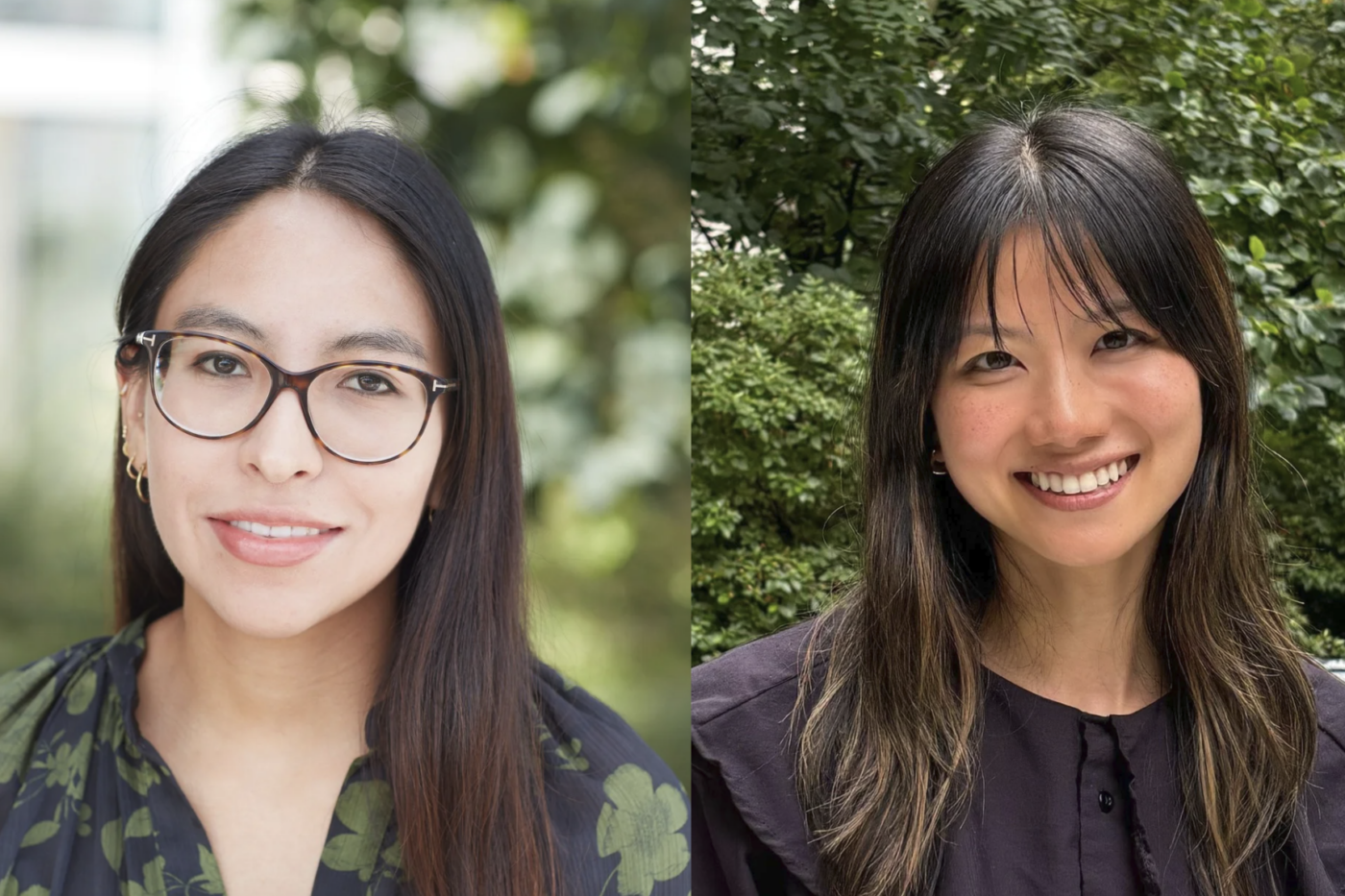Alex Gitlin and Wenyan Jiang win 2016 Weintraub Graduate Student Awards
Alex Gitlin, who performed his thesis research in Michel Nussenzweig’s Laboratory of Molecular Immunology, and Wenyan Jiang, a graduate fellow in Luciano Marraffini’s Laboratory of Bacteriology, are two of this year’s recipients of the Harold M. Weintraub Graduate Student Award. The award, one of the most prestigious in the biosciences, is given by the Fred Hutchinson Cancer Research Center and recognizes outstanding achievement during graduate studies in the biological sciences.

Alex Gitlin (left) and Wenyan Jiang
Gitlin, an M.D.-Ph.D. student, joined Rockefeller in 2011. Work that he performed in Nussenzweig’s lab has helped to reveal two of the mechanisms that allow B cells to produce so-called high affinity antibodies that are the basis of a successful immune response to infection, findings that could help drive the development of more effective vaccines for a range of diseases.
During an infection, B cells whose antibodies bind to the antigen form microanatomical structures called germinal centers, which have two zones. In the “dark” zone, B cells proliferate and mutate their antibody genes before traveling to the “light” zone, where those cells with antibodies that bind best to the antigen are selected by specialized T cells. These T cells, which are the focus of Gitlin’s work, send a signal to the higher affinity B cells, instructing them to subsequently spend even more time in the dark zone, where they undergo a greater number of cell divisions. This allows higher affinity B cells to preferentially take over the immune response.
Gitlin also found that these high affinity B cells not only spend more time dividing and mutating, but they also use their additional time in the dark zone more effectively by dividing at faster rates.
Gitlin earned his bachelor’s degree in chemistry and physics from Harvard University and defended his Ph.D. thesis at Rockefeller in July. He will graduate from the M.D. program in 2017. He is the recipient of an F30 Ruth L. Kirschstein National Research Service Award from the National Institute of Allergy and Infectious Diseases.
Soon after arriving at Rockefeller, Wenyan Jiang heard Luciano Marraffini speak about CRISPR-Cas systems. Seeing how these adaptive bacterial immune responses could be used as tools for genome editing he joined Marraffini’s lab in 2010, where he now explores how CRISPR-Cas systems work and develops them for use in genetic engineering.
CRISPR (short for “clustered regularly interspersed short palindromic repeats”) and its associated (cas) genes enable bacteria and other microbes to acquire immunity against viruses by capturing snippets of the invaders’ DNA. Jiang’s research focuses on the mechanism of a particular type of CRISPR called the type III CRISPR-Cas system. CRISPR defense systems usually attack and destroy viral DNA within minutes after it has been injected into the bacterial cell, so the invading virus doesn’t get a chance to replicate. But under some circumstances, the type III CRISPR-Cas system waits for the virus to replicate and mounts its attack during a later phase of the infection, after the viral DNA has been copied and is being transcribed into RNA. This discovery suggests new possibilities to combat infectious disease.
Jiang is also studying the implications of CRISPR-Cas systems for biotechnology. He and his colleagues developed tools that allow for precise manipulation of bacterial genomes and gene expression. Jiang says that CRISPR-Cas systems are “changing and revolutionizing the way people do biology.”
Jiang, a native of China, received his B.S. in biochemistry from State University of New York at Binghamton and will receive his Ph.D. from Rockefeller this June. After graduation, Jiang hopes to find ways to share CRISPR-Cas technologies with a broad scientific community.
The Weintraub Award was established in 2000 and honors the late Howard M. Weintraub, a founding member of the Fred Hutchinson Cancer Research Center’s basic sciences division who died from brain cancer in 1995, at the age of 49. Weintraub was an international leader in the field of molecular biology who, among other contributions, identified genes responsible for cell differentiation.
The award recipients, announced today, will participate in a scientific symposium at the Hutchinson Center in Seattle on May 6, and will receive an honorarium from the Weintraub and Groudine Fund, established to foster intellectual exchange through the promotion of programs for graduate students, fellows, and visiting scholars. Gitlin and Jiang are two of 12 recipients this year.
Gitlin and Jiang are the 10th and 11th Rockefeller students to receive the Weintraub Award. Past recipients are Agata Smogorzewska, Karina Del Punta, Paul Cohen, Vanessa Ruta, Sung Hee Ahn-Upton, Nadya Dimitrova, Johannes Scheid, Teresa Davoli, and Nora Pencheva; an additional recipient, Gabriel Victora, was a visiting student.


